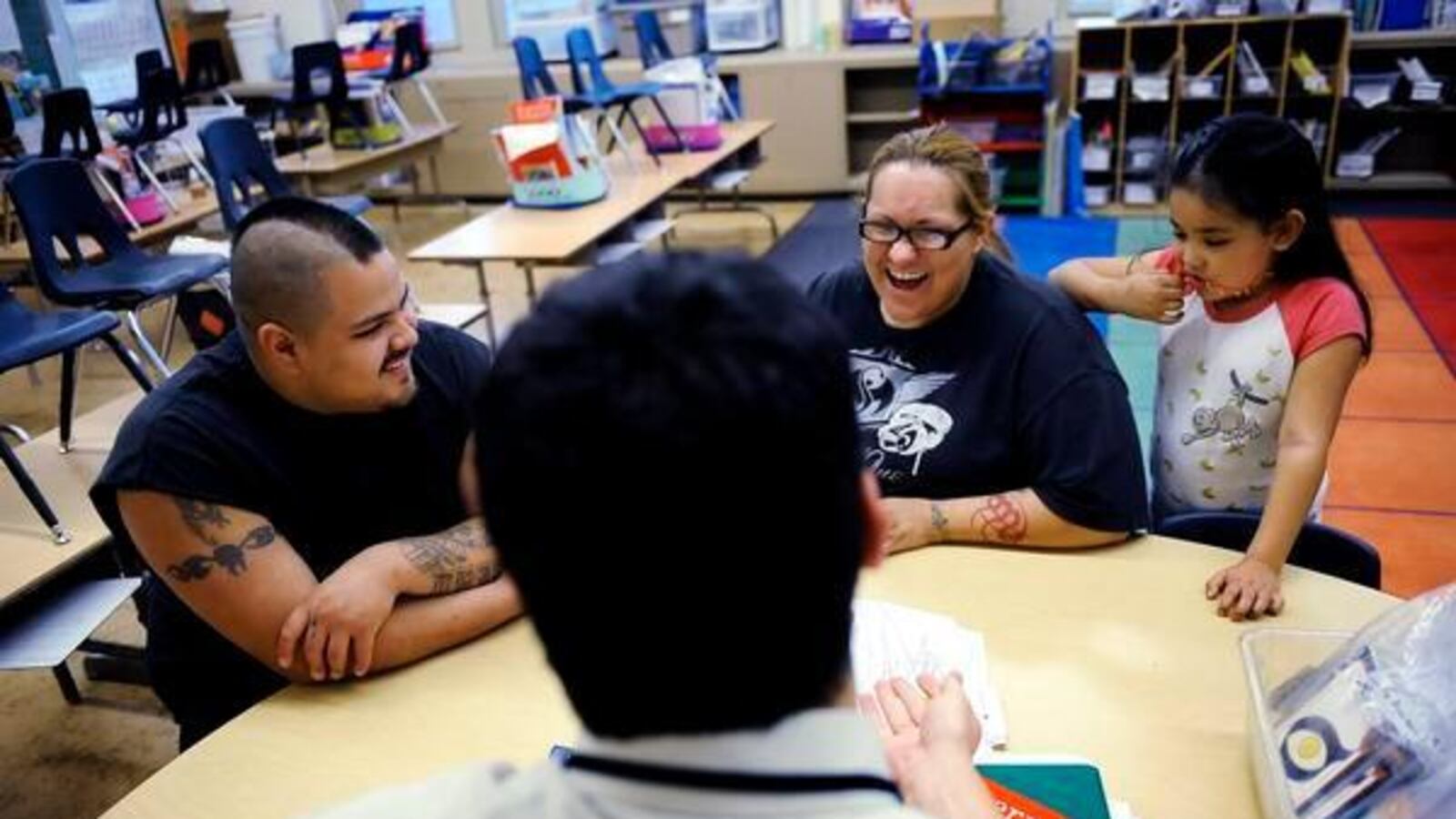In a school district often criticized for not listening to the community, a few parents recently sat down with Denver Public Schools staff to revise its 13-year-old family engagement policy.
One of the first things they did was daydream, said Theresa Becker, the district’s director of family constituency services. “Close your eyes,” she said she told the parents, “and envision a school that has active, vibrant family engagement: What do you see? What do you hear?”
The staff took down their answers: parents helping in the classrooms, family members volunteering, parents feeling like the school is “another home for them,” Becker said.
The policy they came up with doesn’t differ much from the district’s last attempt in 2003. It talks about how schools should foster a welcoming environment for families. How principals and teachers should respect parents as equal partners in their children’s education. And how families should provide input and advice to their schools.
But this time, the parents and staff wrote regulations meant to better ensure the policy will be carried out. The DPS school board is set to vote Thursday on whether to adopt both.
“This new policy has more outlines for parents to break barriers, especially with the language part,” said Elodia Romero, a mother of three DPS students whose first language is Spanish and who works as an organizer with the Denver-based Padres & Jovenes Unidos advocacy organization. The regulations, she said, are “like a roadmap for how to engage parents.”
The proposed regulations say schools will have a plan to “effectively communicate with parents and the community on a frequent and regular basis throughout the school year, formally and informally, in the languages spoken by the parents and the community.”
When possible, front desks should be staffed with people who speak the languages parents speak. And they say interpretation should be available at school-sponsored programs and events.
Thirty-seven percent of DPS students speak Spanish, according to district statistics. Other common languages include Vietnamese, Arabic, Somali, Amharic, French, Nepali and Russian.
In addition, the regulations require schools to assign a point person to oversee volunteering, to set aside a dedicated space for families to network, to consult with families before making important decisions, such as changes to curriculum, and to set up fully functioning school accountability committees to provide feedback on school budgets and academic programs.
“Parents should feel like the red carpet is rolled out for them, not that there are locks on the doors to their involvement,” said Karen Mortimer, a DPS parent who is active with the community organization Together Colorado and who helped write the policy.
But that’s not always the case. While most parents report that they’re generally happy with their children’s schools, fewer say the schools ask for their input on important decisions.
In the most recent DPS parent satisfaction survey posted online, from 2014, only 60 percent of the approximately 40,000 parents who answered said their school does a good job. A slightly higher percentage — 66 percent — said their school provides opportunities to connect with other parents, while 65 percent said their school reduces barriers to parent participation by providing things like interpretation and convenient meeting times.
To Mortimer, who sees big differences in how well schools engage families, that’s not enough.
“Parents are not empowered with the knowledge and the understanding of what should be happening at their schools. School leaders are not being held accountable,” she said. “Those two things come together and mean that you have wide disparities.”
The proposed regulations attempt to change that by calling for the creation of a family advisory council “to provide advice on all matters related to family engagement to include programs supported by Title I funds.” Title I funds are federal dollars provided to school districts to improve academic outcomes for low-income students. DPS will get about $32 million next year.
Schools with a certain percentage of poor students are designated as Title I schools; 156 of DPS’s 199 schools fit that description, according to a district list. Title I schools are required by law to have a parent involvement plan that families help write. Research shows that when families are engaged in their children’s learning, they do better academically.
But DPS officials admit that the level to which Title I schools truly involve their parents in writing the plan and carrying it out varies. The district relies on school staff to report whether they’ve met with parents to show them the plan and explain what being a Title I school means as required by law, said Veronica Bradsby, the DPS title programs director.
“I can’t speak for every principal in every school,” Bradsby said. “But I can tell you there’s compliance and then there’s commitment.” She said that while she’d like every Title I school to show commitment, she knows that doesn’t happen.
In 2003, the last time DPS updated its family engagement policy, the district set up a parent advisory council to ensure the policy’s success. According to Becker, who works for the DPS Office of Family and Community Engagement, the council met for a few years but stopped when the district began hosting its superintendent parent forums, at which the schools chief meets with parents to discuss initiatives and programs underway in DPS.
Mortimer, for one, hopes this time will be different. Only time will tell, she said: while policies and regulations are important, what the district does with them matters more.
“Any document is only as good as the staffing and the support that goes behind it,” she said.


